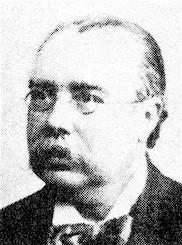
1744 - 1833 Hymnal Number: d976 Author of "With heavenly power, O Lord, defend" in Parish Psalmody Hill, Rowland, M.A., son of Sir Rowland Hill, Bart., was born at Hawkstone, near Shrewsbury, Aug. 23,1744, and educated at Shrewsbury Grammar School, Eton, and St. John's College, Cambridge (B.A. 1769). Taking Holy Orders, he was for a time curate of Kingston, near Taunton. Leaving his curacy, but without renouncing his Orders or his connection with the Church of England, he itinerated for some twelve years, preaching mostly in Wilts, Gloucestershire, Somersetshire, and London. At Wotton-under-Edge he built a Chapel, where he often preached, and also opened the well-known Surrey Chapel, London, in 1783. At the latter place he ministered for nearly fifty years. He took great interest in Evangelical and Mission work, was one of the founders of the London Missionary Society, and a member of the first committee of the Religious Tract Society. He died April 11, 1833, He was the author of several prose works; he also compiled the following hymnbooks:—
(1) A Collection of Psalms and Hymns for the Use of the Poor, 1774. (2) A Collection of Psalms and Hymns, chiefly intended for Public Worship, 1783. This was enlarged in 1787, and a Supplement was added in 1796. Other revisions followed, the last being in 1830. (3) Divine Hymns attempted in easy language for the Use of Children, 1790 (2nd ed. 1794; later editions 1808 & 1819). The hymns in this work, he tells us, are, with the exception of Nos. 24 and 37, his own, revised and corrected by some one he is not permitted to name (Preface iv.-viii.). (4) A Collection of Hymns for Children, 1808. (5) Hymns for Schools, 1832.
In these collections no authors' names are given, and his own contributions, except in the case of the children's Hymns, 1790, are difficult to determine. By common consent the following, including some from the 1790 Hymns, are attributed to him:—
1. Come, Holy Ghost, the Comforter. Whitsuntide. No. 30 of his Divine Hymns for Children, 1790, in 5 st. of 4 1. and headed "A Child's Prayer to God the Holy Spirit." It was repeated in the later editions of the Divine Hymns, and is found in modern hymn books.
2. Dear Friend of friendless sinners, hear. A Prayer for Rest in God. In his Psalms & Hymns &c, 1783, No. 89, in 4 st. of 6 1., and headed "A Prayer for the promised Rest." In modern hymnbooks its use is limited.
3. Happy the children who betimes. Godly Education. No. 8 in his Divine Hymns, 1790, in 5 st. of 4 1., and headed " The Blessings of a godly Education." It was repeated in later editions, and, sometimes with the omission of st. v. in modern collections for children.
4. Lord, we raise our feeble voices. Praise to Jesus
. Major, in his Book of Praise for Home & School, dates this hymn 1800. It is found in several collections for children.
5. My parents gave me, Lord. A Child's Dedication to God. No. 13 in his Divine Hymns, 1790, in 6 stanzas of 6 lines, and headed "A Child's Hymn on easy Dedication to God in Holy Baptism." It is in a few modern collections.
6. We sing His love Who once was slain. The Resurrection. Appeared in the 1796 Supplement to his Psalms & Hymns It is in American common use.
7. When Jesus first at heaven's Command. The Kingdom, of Christ exalted. Composed for the London Missionary Society, and printed in the Evangelical Magazine, 1797, vol. v. p. 263. It is appended to the author's sermon to the volunteers preached at Surrey Chapel, 1803, and was also included in the 1810 ed. of his Psalms & Hymns, No. 302, in 6 stanzas of 4 lines with the chorus, "Hail Immanuel," &c.
8. With heavenly power, 0 Lord defend. Departure of Ministers. Published in his Psalms & Hymns, 1783, No. 234, in 4 stanzas of 4 l,ines and headed "For Ministers at their Departure." In modern hymn books it is generally given in 2 stanzas.
9. Ye that in these [His] courts are found. Public Worship. This is usually attributed to R. Hill. It appeared, however, in Lady Huntingdon's Hymn Book, 1765, p. 404 (ed. 1773, p. 256), and can scarcely be his. In his Psalms & Hymns 1783. It is usually given as "Ye that in His courts," in modern collections.
The person referred to as having revised the Divine Hymns, 1790, was the poet Cowper. The best known of R. Hill's hymns, "Cast thy burden on the Lord," and "Gently, my Saviour, let me down," are annotated under their respective first lines. His Life, by the Rev. E. Sidney, M.A., was published in 1834.
--John Julian, Dictionary of Hymnology (1907)
Rowland Hill


 My Starred Hymns
My Starred Hymns





